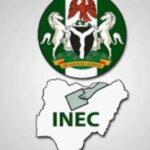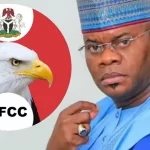From NEPA to PHCN to NERC and AEDC; New wine in old wineskin?
I recently attended a customer complaint resolution townhall meeting, organised by the Nigerian Electricity Regulatory Commission (NERC), in collaboration with National Orientation Agency (NOA), in Lokoja. One of the aims of the meeting was to educate power consumers in Kogi State on their rights and obligations and also to bridge the gap between consumers and Abuja Electricity Distribution Company (AEDC). Consumers, both elders and the youths, came prepared. Communities and estates were represented. The physically able people came in their numbers. They were all angry, angry at AEDC popularly known as Power Holding Company of Nigeria (NEPA) by most Nigerians. They couldn’t wait to let out their steam.
As a child, I grew up to the phrase “up NEPA”, just like every other Nigerian child. Whenever there is power outage and power is restored, a resounding “up NEPA” echoes. This is an unwritten agreement by all Nigerian children. Nigeria begins to happen to you once you are given birth to as a Nigerian. It gets to a point where we get used to the life being a Nigerian throws at us. We laugh and smile against all odds, we hustle through the harsh realities of been a Nigerian, we navigate through the challenges and come out strong. And rather than live in Nigeria, Nigeria lives in us.
Let me share a personal experience with you. How Nigeria happened to me in far away South Africa. Years ago, I traveled to South Africa and stayed for three weeks. One afternoon while enjoying my siesta, suddenly, I jumped up, got out of bed angry at myself. Why was I angry? There was light and I had not charged my phones. O my God! I exclaimed, angry at myself for not beating NEPA to it. What if there’s power outage? I quickly connected my phone to the charger, praying that NEPA will not in its usual style seize power. Praying that NEPA will have mercy on me until both phones are fully charged. All these happened in less than two minutes.
While at it, I knew I was not in Nigeria, but my subconscious mind was all Nigerian. Thank God it was original charger, what we refer to in Nigeria as “follow come.” The first phone was fully charged in less than 15 minutes. I plugged the second phone, went to the rest room to ease myself. That was when it hit me. I was in South Africa!!! To say I was disappointed was to say the least. I was mad and after a while, I started laughing. Was it my fault? Nigeria happened to me. It was that bad. I came back to Nigeria and it is still the same.
So when NERC organised the town hall meeting, I knew what the reaction would be. What I am not sure of is the outcome. Is it going to be all talk and no action as usual? Will there be change? Complaints range from metering to disconnection, overbilling to total and constant blackout to consumers buying transformers and its accessories amongst others.
Over the years, governments have made changes, enacted laws, all in the bid to provide electricity for Nigerians. From April 1st, 1972, when NEPA came into being to 6 January 1973 when the first general manager was appointed, there has been changes of electricity development. In the late 2000s, the company became a public limited company (NEPA PLC), and then later the name was changed again from NEPA plc to the Power Holding Company of Nigeria (PHCN).
For several decades, despite consistent perceived cash investment by the federal government, local and at times even nationwide power outages have been the norm instead of the exception. Because of such outages, over the years, Nigerians have nicknamed the power company as “Never Expect Power Always” (NEPA), “No Electrical Power at All; Please Light Candle” (NEPA PLC), and “Please Hold a Candle Now” (PHCN).
According to Wikipedia, major issues within the Nigerian power sector, principally concerning power outages and unreliable service, compelled the Nigerian government to take radical action. It enacted the Electric Power Sector Reform Act of 2005, which called for unbundling the national power utility company into a series of 18 successor companies: six generation companies, 12 distribution companies covering all 36 Nigerian states, and a national power transmission company. The act stipulated that ownership of these companies be granted to the Bureau of Public Enterprises (the privatisation arm of the Federal Government) and the Ministry of Finance Incorporated. This unbundling paved the way for an ambitious privatisation programme to be carried out by the Bureau of Public Enterprises in Nigeria.
On 30 September 2013, following the privatisation process initiated by the Goodluck Jonathan regime, PHCN ceased to exist. In its stead, the Nigerian Electricity Regulatory Commission (NERC), was formed. The independent regulatory agency, as provided in the Electric Power Sector Reform Act of 2005 was tasked with monitoring and regulating the Nigerian electricity industry, with issuing licences to market participants, and with ensuring compliance with market rules and operating guidelines.
Following the 2013 divestiture of the federal government from PHCN, the company was divided into separate companies or entities called Local Electric Distribution Companies or Local Distribution Companies (LDC). Each company will be responsible for handling electricity distribution in each state or region. As of May 2016, the structure of the companies was as follows: 11 Distribution companies; Abuja Electricity Distribution Company plc, Benin Electricity Distribution Company plc, Eko Electricity Distribution Company plc, Enugu Electricity Distribution Company plc, Ibadan Electricity Distribution Company plc, Ikeja Electricity Distribution Company plc, Jos Electricity Distribution Company plc, Kano Electricity Distribution Company plc, Kaduna Electricity Distribution Company plc, Port Harcourt Electricity Distribution Company plc and Yola Electricity Distribution Company plc. With six generation companies such as Afam Power plc, Egbin Power plc, Kainji Hydro-Electric plc, Sapele Power plc, Shiroro Hydro-Electric plc, Ughelli Power plc and one Transmission company of Nigeria.
In all these, Nigeria’s electricity grid has collapsed for the fourth time this year alone, with power generation dropping from nearly 4,000MW to 57MW. With each collapse throwing the nation into total blackout. Would I be wrong to say all efforts by successive governments is putting new wine in old wineskin? According to the New Kings James Version, Mark 2:22, says “And no one puts new wine into old wineskins; or else the new wine bursts the wineskins, the wine is spilled, and the wineskins are ruined. But new wine must be put into new wineskins.”
Back to the town hall meeting. The hall became rowdy. Everyone wanted to be heard. Almost everybody present called for the head of the Area Manger and his ally (I have no idea who that person is). They have lost trust in the system. It is the responsibility of our leaders to ensure new wine goes into new wineskins. Government should make adequate provision to enhance electricity consumption towards boosting economic growth in the Nigerian.
The problem of Nigeria no doubt is multidimensional. A weakening economy, fall of the naira, high cost of living as a result of hike in fuel, hike in electricity tariffs and rising insecurity which threaten progress amongst others. It will take time, but something must be done. Our leaders know what to do. It behoves on them to do the right thing.







